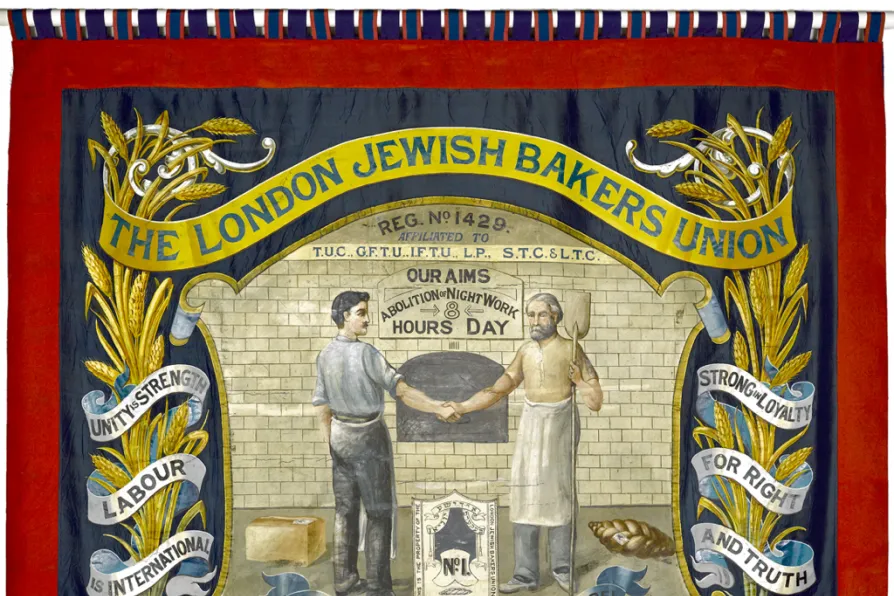RICHARD MURGATROYD enjoys a readable account of the life and meditations of one of the few Roman emperors with a good reputation
London Jewish Bakers Union banner


THE LONDON Jewish Bakers Union (LJBU) was established in 1909 with the aim of fighting for better conditions, including an eight-hour day and the abolition of night shifts, and more pay.
LJBU began life in meetings of refugee bakers held in the Jewish pubs in London’s Black Lion Yard. At the time, most Jewish immigrants absorbed socialist ideas through union activism rather than study of its theory.
Similar stories

Ben Cowles speaks with IAN ‘TREE’ ROBINSON and ANDY DAVIES, two of the string pullers behind the Manchester Punk Festival, ahead of its 10th year show later this month

CAROLINE FOWLER explains how the slave trade helped establish the ‘golden age’ of Dutch painting and where to find its hidden traces

The Morning Star sorts the good eggs from the rotten scoundrels of the year











